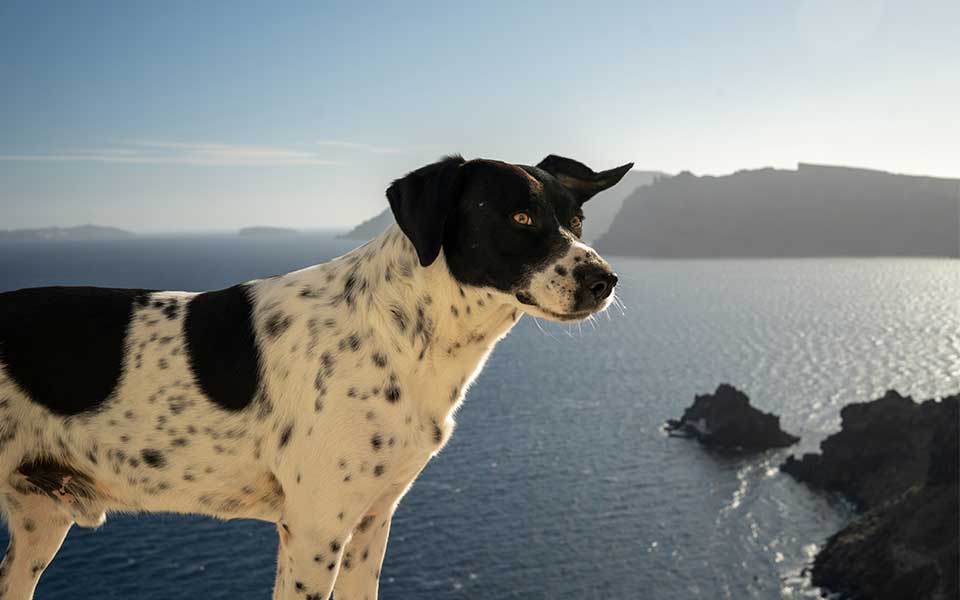New York-based Theo Moumtzidis and Silja Schiller are the founders of the Zero Stray Pawject, an initiative committed to finding a cruelty-free, sustainable way to reduce the number of stray dogs on the Greek island of Aegina. It is currently nearing the milestone of achieving zero stray dogs on the island.
Aegina, where the project has been active over the past few years, is the first place Moumtzidis and Schiller approached with a planned solution in mind. Being an island, and therefore a contained environment, Aegina provided the perfect test area. Implementing the pilot project and solving the problem of strays at any mainland location would have been impossible, they say, because stray dogs wander between neighbouring locations.
“What we are trying to do, in the case of Aegina,” says Moumtzidis, “which is our pilot, is to bring the people together – the mayor, the municipality, other stakeholders, animal welfare on the island, the police, the Coast Guard, the citizens – under the existing legal framework and find a balanced solution to eliminate stray dogs. While Aegina is just a small island on a gigantic globe, it is very important that we complete the project in this environment and prove that it’s possible to do it in a sustainable way, with the participation of the local community and without extraordinary measures like poisoning or killing.”
They are currently working hand in hand with the municipality of Aegina, and Ms Sofia Hatzina, Director of Public Health, the police, the local veterinarians and the local shelter on eradicating the problem of stray dogs through public policy initiatives.
Thrilled by the enthusiasm for the project that she sees among the island’s residents, Schiller gives credit for its successful outcome to all the local stakeholders and the citizens of Aegina, but she singles out Sofia Hatzina, whom she brands “a local hero.” Regarding the role that she and Moumtzidis have played, Silja declares: “It’s not us; it’s a community effort.”
The Greek authorities have embraced the couple’s cause whole-heartedly, although unforeseen bureaucratic issues had to be resolved at the beginning, such as the acquisition of microchip readers delayed by regulations and a long procurement process.
Among other initiatives, the Zero Stray Pawject designed, produced, and funded a municipal dog-tag system for Aegina, working together with Welttierschutzgesellschaft, one of their three local grant partners. Every owned dog that is micro-chipped and registered on the municipal registry receives its own tag, which displays its unique Aegina dog registry number. The police and Coast Guard also started microchip controls; that brought a lot of owners to microchip their dogs. They believe that if they manage to register them all, then they can reduce the number of adult dogs being abandoned.
Just two years into the ambitious project, approximately 50% of all dogs on Aegina are now micro-chipped. Moumtzidis hopes that, by this time next year, the abandonment of at least adult dogs will have greatly decreased, assuming the police continue their checks and all stakeholders maintain the intensity with which they had been addressing the problem before the Covid-19 lockdown.












